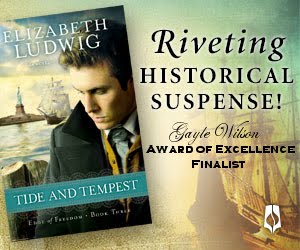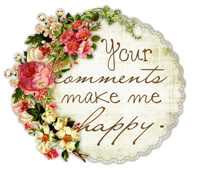 Today we bid a fond adieu to Jamie Chavez. Shout out your questions if you want Jamie's opinion on anything writing related. Check out her site http://www.jamiechavez.com/ for information and prices on the editorial services she offers. She's tops!
Today we bid a fond adieu to Jamie Chavez. Shout out your questions if you want Jamie's opinion on anything writing related. Check out her site http://www.jamiechavez.com/ for information and prices on the editorial services she offers. She's tops!Tell us about yourself?
Is this like that meme that was going around a few years ago—25 Random Things About Yourself? Hmm. I learned to read when I was three and to write soon thereafter, and I’ve been doing both voraciously ever since. I started asking for—and collecting—books when I was a kid, and still have most of them. I grew up and went to school in California, married early, had a son. I’ve been a single mom for twenty years, although I should probably stop saying that since the Boy is twenty-seven now. :) Besides the Boy and reading, I love travel, gardening, live music, cooking, my cats Laddie and Bean, and the lovely Irishman to whom I’m engaged to be married. Someday. I’m becoming an expert in immigration law. Ha.
Why did you choose to go freelance?
Um, I was forced to. :) Got caught up in a corporate downsize. I assure you, I am not a risk taker and would never have gotten up that morning and thought, Hmmm, I think today I’ll quit my job and go home and phone all my friends and ask them to send me work. But that’s what happened. I continued to look for a corporate gig for months but then I realized God was standing there with a big ol’ door standing wide open, beckoning me through with, you know, those flashlights like the guys use on the aircraft carriers. Duh. I’m paying better attention now.
What is the difference between a developmental editor and the editor you encounter at a publishing house?
An in-house editor must wear many hats. She has to acquire projects (seek out and pursue authors/books), she has to negotiate contracts, she has to oversee creation of cover and writing of marketing copy (one hopes she doesn’t do it herself) for the book, she has to ride herd on several projects in various stages of completion, she has to pay attention to the sales figures for her various authors, she has to track trends in the publishing industry … and on and on. She’s lucky if she can also carve out time for developmental editing on any one project. In any one quarter.
And of course, that’s the fun part of the job. So lucky me, no? I only wear the one hat.
I guess what I meant was … what does a developmental editor do?
Note first that different publishers have different terms for this job: substantive, developmental, macro, big-picture. I’ve even seen some freelance editors market themselves as “book doctors.” But what it means is … I’m a critic. I was/am the bossy older sister, so this role comes naturally to me. :) In fiction, a dev editor is looking at story, style, voice, structure, setting/milieu, characterization and dialogue, and the writing itself. All the things that make a novel a novel, those are the things a dev editor is paying attention to. With love and respect, one hopes. That’s certainly how I’m trying to do it.
Sure, I’m a paid critic; the publisher trusts me to know what needs work, what readers will think, and what it will take to make the book the very best it can be. On occasion I have to be the bearer of (ahem) unpleasant tidings. But I try to do that from the perspective of cheerleader, best friend, colleague—not parent, boss, or annoyed lab partner.
Sometimes it’s a fine line. :)
I love this work. Each manuscript is like a puzzle, and I get to solve it. (Yes, I adore jigsaw puzzles.) Not without help, of course. I love the collaborative aspect of editing, the give and take. I love brainstorming. I love those e-mails out of the blue that begin, “I’ve been working on a new story. What would you think if …”
What process do you go through when you get a manuscript?
This is what I do; I’m not sure what other editors do. When an author has written her zillion drafts and finally thinks her manuscript is pretty darn good, her publisher sends it to me and I begin my reading process. (I’ve read it twice before I send the notes; and I’ll read it more before we’re done).
I read it really carefully, making a lot of notes. (Probably a lot more carefully than most casual readers!) I also leave margin notes. I ask questions as I read (like: Why did he react that way? How did she know that?). I keep track of every character and make notes about their descriptions and their relationships. I keep a timeline (in some books this is really important, in others less so). I like to sleep on it. I like to just … think about it. I note places where I might find myself falling asleep as I read. :) At page 100 I make a list of what I know and where I think the book is going. When I’m done, I try to “diagram” the novel: what was the inciting incident, the story-worthy problem, the climax, and so on. I try to list what the themes are, so I can make sure they’re supported throughout.
I always use track changes, of course. This is a really important trust issue.
Honestly, I’m not sure if this list really covers it. (You’ll note that none of what I’ve listed has to do with correcting your grammar. That’s up to the copyeditor.) There’s a lot of alchemy involved, I think. It’s sort of … voodoo. :)
Where do you think publishing will be in ten years?
Oh, heavens, there are smarter people than me trying to figure that out. I can tell you I’m paying close attention, though, because it affects my livelihood (it is already affecting my livelihood). But the bottom line is it will be very different than it is now. Authors will have more autonomy (see: self-publishing) but readers will have to learn how to become more discerning. Right now a lot of people who are self-publishing are people who have never been published and don’t understand the editorial process. Even if they know they need an editor, they’re not sure how to find one. Even if they find one, they may be unwilling to pay what it costs to hire one. So they don’t. That’s really a problem for potential readers!
I have written three blogs on what’s happening in the publishing biz. They’re too long to repeat in this forum, but you can find them here:
http://www.jamiechavez.com/blog/permalink/2011/01/it-was-the-best-of-times-it-was-the-worst-of-times/
http://www.jamiechavez.com/blog/permalink/2011/01/a-novelist-needs-an-editor-for-real/
http://www.jamiechavez.com/blog/permalink/2010/06/a-nation-of-content-creators/
But back to those smart people … who have some interesting ideas and are blogging about them. Two of these I read regularly: Mike Hyatt and Mike Shatzkin . I can’t recommend them highly enough. There are others, of course, but these are two I read and trust.
What advice would you give to an aspiring writer (unpublished but actively seeking publication)?
Read. Write. Read. Write. Read. Sleep on occasion.
Read. Write. Read. Write. Read. Sleep on occasion.








 Anonymous
Anonymous








0 comments :
Post a Comment